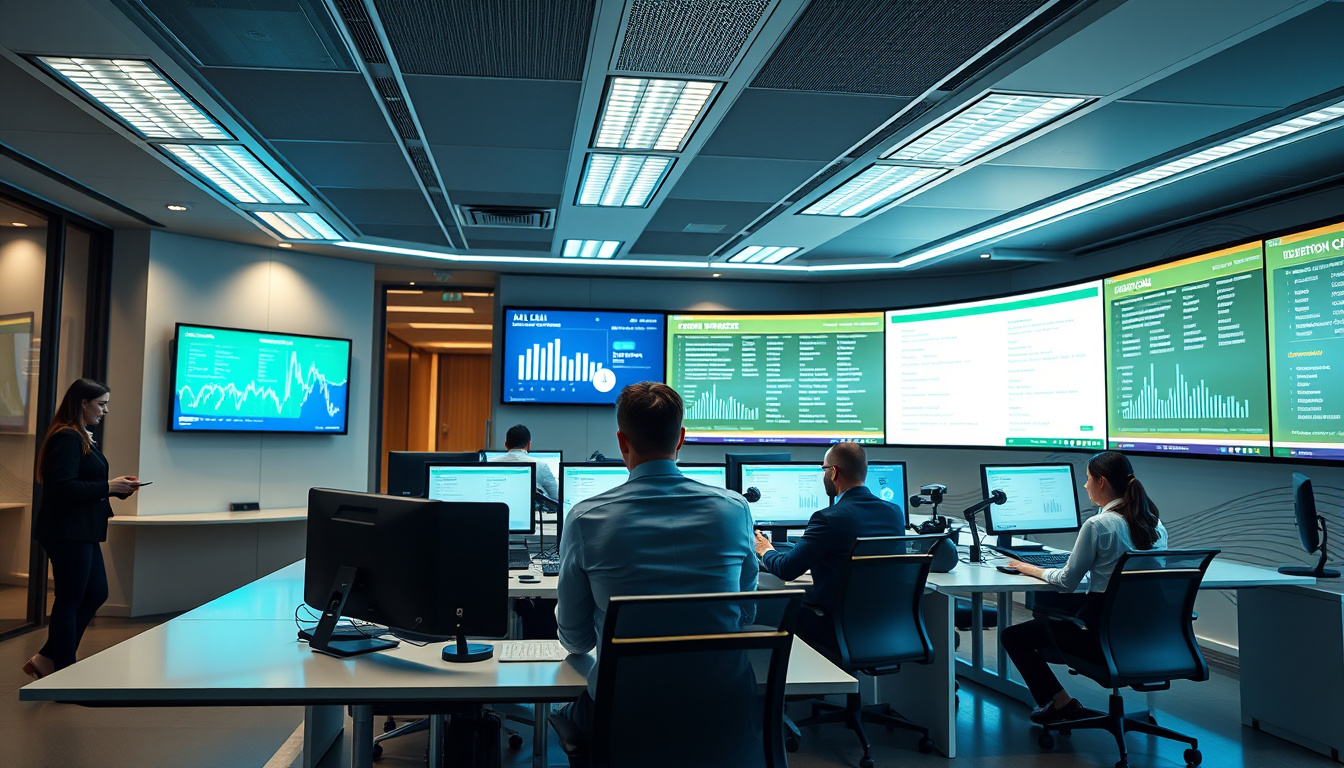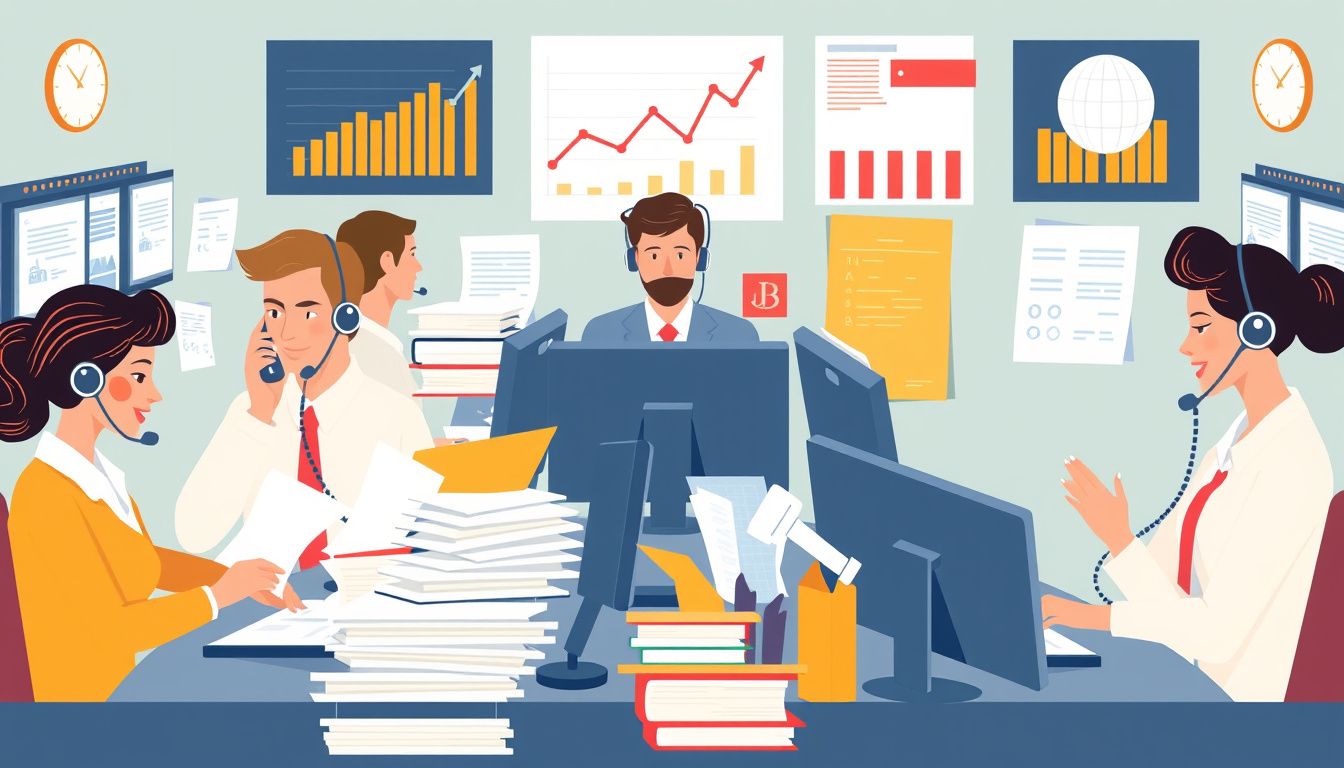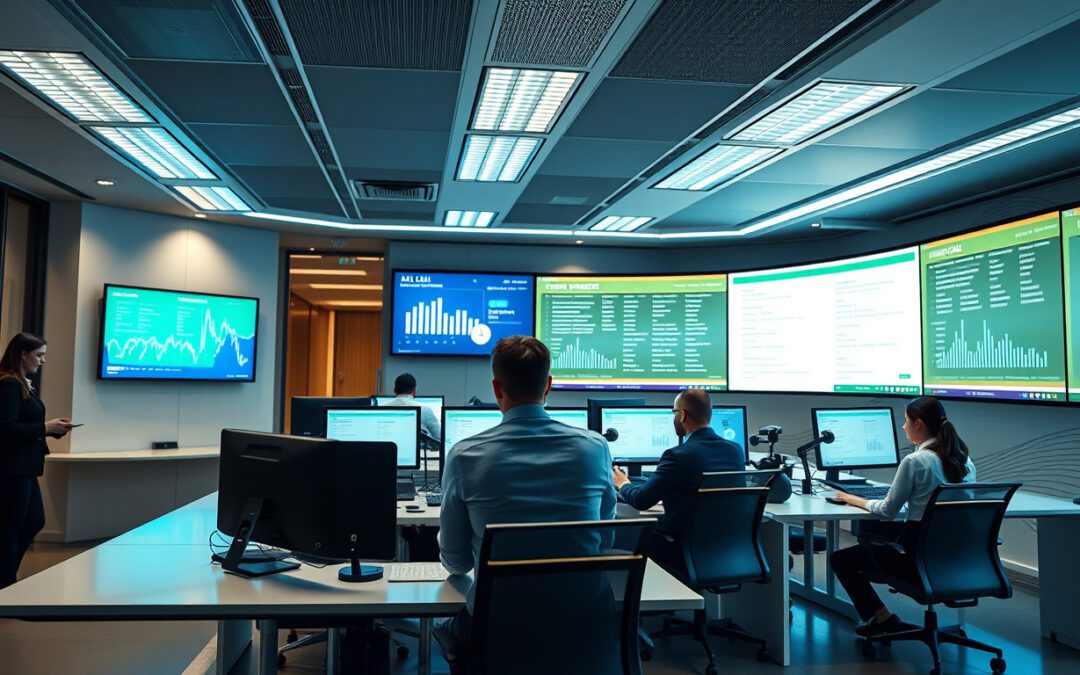In the fast-paced world of law, effective communication is crucial for success. Law firms are increasingly recognizing the importance of legal call dispatching as a vital component of their operations. This essential guide will take you through the nuances of legal call dispatching, from its benefits and key features to best practices for implementation and overcoming common challenges. Whether you are a small law office or a large legal practice, understanding and optimizing your call dispatching system can significantly enhance your client relations and streamline your operations.

Key Takeaways
- Legal call dispatching enhances communication efficiency in law firms.
- Implementing a robust call dispatching system can significantly boost client satisfaction.
- Key features of an effective legal call dispatching system include real-time tracking and analytics.
- Best practices involve training staff and integrating technology to streamline workflows.
- Future trends indicate a growing reliance on AI and automation in legal call dispatching.
Understanding Legal Call Dispatching
Legal call dispatching is an essential service that facilitates efficient communication and coordination within the legal field. This specialized approach involves the systematic handling of calls related to legal matters, ensuring that inquiries from clients, witnesses, and legal professionals are addressed promptly and effectively. Understanding legal call dispatching is crucial for law firms and legal practitioners as it streamlines operations, enhances client satisfaction, and provides a reliable means of managing incoming legal inquiries. By employing advanced dispatch technology and trained staff, legal call dispatching services can prioritize calls based on urgency, maintain confidentiality, and ensure that important information is documented accurately. This proactive approach allows legal teams to focus more on casework and less on administrative burdens, ultimately improving overall productivity and client relations.
The Benefits of Efficient Call Dispatching in Law Firms
In the fast-paced environment of a law firm, efficient call dispatching plays a crucial role in streamlining operations and enhancing client satisfaction. Legal call dispatching facilitates the immediate handling of client inquiries, ensuring that no call goes unanswered and every concern is addressed promptly. This efficiency not only improves communication with potential clients but also allows legal professionals to devote their time to core legal tasks rather than managing incoming calls. Furthermore, with the use of advanced legal call dispatching technology, law firms can capture valuable data about client interactions, leading to improved service and more effective follow-ups. Ultimately, the benefits of efficient call dispatching in law firms extend beyond mere convenience; it fosters a proactive approach to client management, enhances the firm’s reputation, and can significantly contribute to increasing the client base and overall revenue.
‘Communication works for those who work at it.’ – John Powell

Key Features of a Good Legal Call Dispatching System
When looking for an effective legal call dispatching system, it’s essential to consider its key features that enhance communication and streamline operations for law firms. A good legal call dispatching system should offer 24/7 availability, ensuring that client calls are answered promptly at all hours. Additionally, it should provide high-quality call recording to maintain a record of important conversations, which is crucial for legal compliance and review. Another important feature is the ability to integrate with case management software, allowing seamless transfer of client information and case details. Customizable call routing is also vital; it ensures that important calls reach the right attorney or staff member based on preset criteria. Furthermore, the system should support multi-channel communication, including SMS and email notifications, to ensure no client request goes unanswered. By focusing on these key features, law firms can significantly improve their efficiency and client satisfaction through a robust legal call dispatching system.
Best Practices for Implementing Call Dispatching in Your Firm
Implementing effective legal call dispatching in your firm is crucial for enhancing client communication and ensuring seamless operations. To get started, it’s vital to understand the specific needs of your practice and tailor your dispatching system accordingly. First and foremost, invest in a reliable call dispatching software that allows for efficient management of incoming calls, ensuring that each client is directed to the right department or attorney without delay. Additionally, train your staff on best practices for handling calls, including proper etiquette and effective communication techniques. This training should also cover the use of any technology involved in your dispatch process. Maintaining a well-organized system for call logs and follow-ups is another key component, as it provides a record of client interactions and follow-through on inquiries. Regularly evaluate the performance of your dispatching system through client feedback and staff input to identify areas for improvement. By adhering to these best practices for legal call dispatching, your firm can enhance client satisfaction, streamline processes, and ultimately drive greater success.

Common Challenges in Legal Call Dispatching and How to Overcome Them
Legal call dispatching is a critical component in ensuring that clients receive timely and effective assistance from legal professionals. However, this process can present a variety of challenges that, if not addressed, may hinder the effectiveness of legal services. One common challenge in legal call dispatching is the inability to manage high call volumes efficiently. Law firms may experience surges in inquiries, especially during peak times or after significant legal news breaks, leading to overwhelmed staff and frustrated clients. To overcome this, firms can implement call routing systems and invest in call center technology that allows for automated responses and better monitoring of call metrics. Another significant issue is the lack of proper training for dispatch operators, which can lead to miscommunication and delays in getting the right legal resources to clients. Ongoing training programs can equip dispatchers with the necessary skills to handle calls confidently and accurately. Furthermore, the integration of a customer relationship management (CRM) system in the dispatch process can streamline client information gathering and ensure that lawyers are prepared with context before returning calls. By addressing these common challenges in legal call dispatching, firms can not only enhance operational efficiency but also improve client satisfaction and retention.
Future Trends in Legal Call Dispatching Technology
As the legal landscape continues to evolve, future trends in legal call dispatching technology are expected to significantly transform how law firms and legal professionals manage client communications and case initiation. One of the most notable trends is the increased integration of artificial intelligence (AI) in legal call dispatching systems. AI can streamline the process by efficiently sorting calls based on urgency, complexity, and the specific needs of clients, ensuring that legal representatives are only focused on cases that require their expertise. Moreover, the rise of cloud-based solutions is set to revolutionize how legal call dispatching operates, allowing for seamless communication across multiple devices and locations. This level of flexibility ensures that crucial client interactions can happen anywhere, enhancing accessibility and service quality. Additionally, with the growing emphasis on security and compliance in the legal industry, advanced encryption technologies will likely become standard features in legal call dispatching systems, protecting sensitive client information while adhering to regulatory requirements. As these trends take root, law firms equipped with cutting-edge legal call dispatching technology will not only improve operational efficiency but also enhance client satisfaction and trust.


